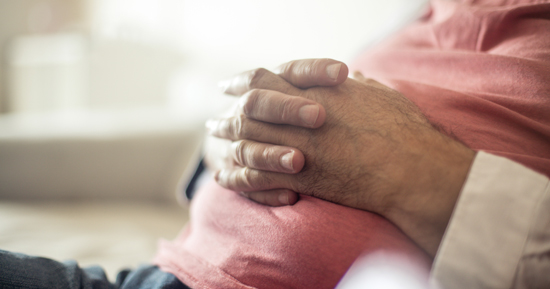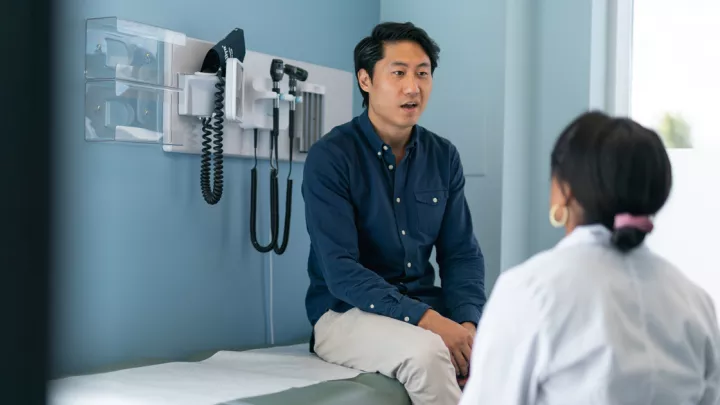
As a man ages, the prostate can increase in size, causing the urethra to narrow and decrease urine flow. This condition is called benign prostatic hyperplasia (BPH), otherwise known as enlarged prostate. While there may be various contributing factors for an enlarged prostate, the most important is the continued growth with age, as BPH occurs when the prostate grows large enough to cause urinary symptoms. Statistically, 50% of men between ages 51-60 and 90% of men over 80 years old are affected by BPH. Other factors may include family history, obesity and inactivity.
BPH symptoms
An enlarged prostate is not generally a cause for concern. However, as the prostate grows, it can further compress the urethra, causing urinary symptoms to worsen.
Symptoms of BPH can include:
- Weak stream and flow when urinating
- Incomplete emptying – feeling like you don't empty your bladder all the way
- Frequency – having to urinate again, less than two hours after you finish
- Intermittency – stopping and starting several times when you urinate
- Urgency – having a hard time waiting when you have to urinate
- Straining – having to push to urinate
- Nocturia – getting up to urinate after going to bed
When is treatment necessary?
Most men consider BPH treatment due to aggravating urinary symptoms. Less commonly, BPH can cause more significant issues such as inability to drain the bladder, kidney damage and urinary tract infections. Treatment should be considered if ongoing urinary symptoms exist or further medical problems secondary to BPH develop. Your doctor can make a diagnosis with a discussion of your symptoms and a physical exam.
Additional tests that may help with evaluation and management include:
- PSA (blood test to screen for risk of prostate cancer)
- Post void residual ultrasound (measures how much is remaining in your bladder after urinating)
- Urine flow tests
- Cystoscopy (camera visuals of the urethra and bladder)
Managing symptoms without treatment
If you are experiencing symptoms but decide to monitor them with your doctor without treatment, these actions may help:
- Avoid excessive fluid intake
- Limit spicy, acidic foods or fluids irritating to the urinary tract
- Decrease alcohol and caffeine consumption causing excess urine production
- Urinate every 3 to 4 hours during the daytime
- Relax while urinating and even try to empty the bladder twice in a row
- Avoid fluid intake within 2 hours before bedtime
- Avoid constipation
BPH treatment options
You and your doctor will decide which treatment options best suit your situation. The best choice for you may depend on your prostate's size, the severity of your symptoms, and your other medical conditions or medications.
If you suspect an enlarged prostate may be the cause of your symptoms, we encourage you to have an open conversation with your doctor about prostate health, screening and treatment.



